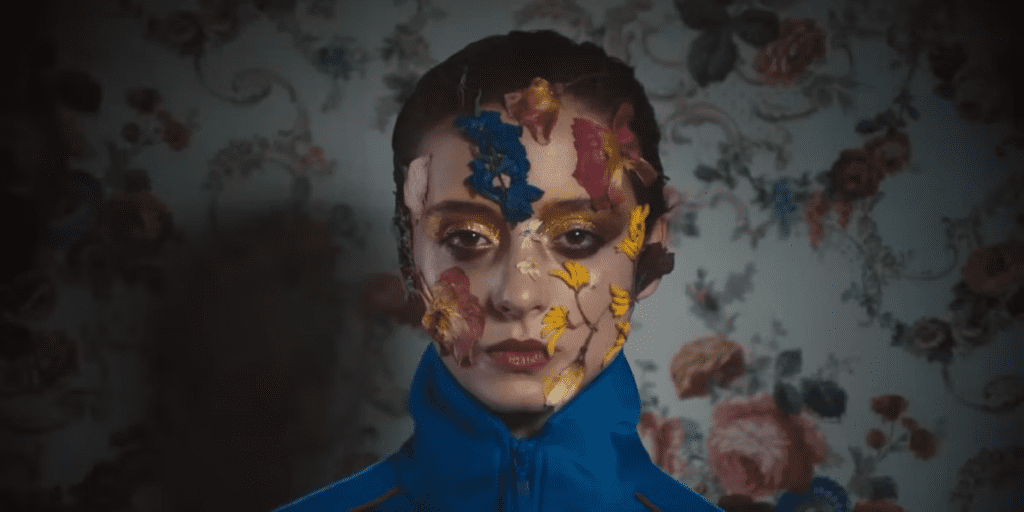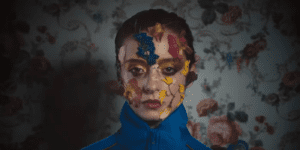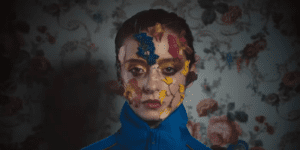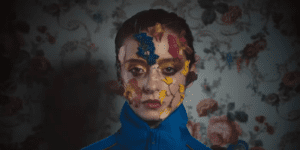Summary
Strange, macabre, and striking, Copenhagen Cowboy will divide audiences, but it’s worth watching because of how unlike anything else it is.
Every director has at least one bizarre, self-indulgent work in them, the kind of thing the studio system won’t let them make, that audiences can’t quite parse, and that feels as much like therapy as filmmaking. Nicolas Winding Refn, the noteworthy director of psychedelic genre deconstructions like Drive, Only God Forgives, and The Neon Demon, is unusual in that regard since bizarre, self-indulgent stuff seems to be the only stuff he’s interested in making.
Copenhagen Cowboy, a six-part Netflix series set in the underbelly of Refn’s birthplace, is about a young woman named Miu (Angela Bundalovic), who dresses like Niko Bellic from Grand Theft Auto IV and navigates the neon-drenched Danish underworld in search of revenge. A melange of squealing pigs and gaudy lighting, this dreamscape of debauchery isn’t quite as aggressively macabre as some of Refn’s other settings and stories, but it’s an equally strange, compelling, and almost supernatural land of exquisitely constructed make-believe, the kind it seems a platform like Netflix exists to bring to life when other, more traditional platforms wouldn’t dare.
The squealing of pigs mentioned above is a recurring idea here, the sows punctuating moments of sex and violence, blurring the depravity of human behavior with the natural exhortations of ravenous animals. Are we the pigs, lazily gobbling whatever we’re fed, or are we the people, ignoring the yelps of our captive foodstuffs until we’re ready to slaughter and eat them? Hard to tell. Either way, we’re in here somewhere, right alongside the possibly magical protagonist, the vicious gangsters, the delusional, cruel women trying to underpay for miracle conceptions, and the lost, paperless hostages, stripped of identity and respect. All of humanity is here, in one way or another, but it isn’t always easy to find, and you won’t always be thankful for the discovery when it turns up.
Refn’s camera is often uninterested in the events, floating away as if it has somewhere else to be. His script, by Sara Isabella Jønsson, Johanne Algren, and Mona Masri, barely acknowledges your presence and feels a bit resentful of it when it remembers you’re there. Miu, the protagonist, is referred to as “mysterious” in the first episode’s title, and remains that way all throughout, an inscrutable guide through a kaleidoscopic world. Information is doled out sparingly, a traditional storytelling structure is non-existent, and a lot of stuff is funny when you know you shouldn’t be laughing. Trust Refn, of all people, to have me writing one of these vague reviews so early in the year.
But what else is there to say? Copenhagen Cowboy is deliberately difficult to classify. I could describe it as any number of things and I’d either be wrong or right but missing the point all the same. You can’t pigeonhole something like this in a neatly labeled genre box because it defies that approach; it breaks all the rules, even some it sets for itself. It’s as much a revenge thriller as a magical-realism coming-of-age story, as much a comedy as a drama, and as much about the depths of human depravity as the power of hope and kindred spirits finding their salvation through each other. It’s all these things and more and yet, somehow, none of them at all. It just is.
Miu is, like the audience, an often-silent observer. She watches more than anything else. She stares. Thinks. And while she occasionally acts, sometimes with great purpose and power, she does nothing on a whim. Bundalovic, tremendous here, is a statuesque avatar of our voyeuristic nature, a detached onlooker trying to put the pieces together, sometimes visibly shocked to be privy to the same things we are. But Refn is interested in this character, in who she is and where she came from, and so after a while, we become curious too. The watcher becomes the watched, the observed, her efforts to put the pieces of herself together mirroring our own assembly of her identity, her potential, bits and pieces we’ve gleaned from here and there making Miu a mosaic.
This, I think, is the value of Copenhagen Cowboy, a group exercise in figuring out what everything means and who everyone is, the hall of magic mirrors you roam through trying to trace the outline of its reflections. That fractured-glass, refractive quality is present in almost all Refn’s work, especially the recent stuff, but it’s especially prominent here in the lazy arc of a six-episode series that feels longer than the season order but still seems to be over in no time at all – almost as if it never happened or did so only in a feverish haze, which on some level it did. Those who liked Bronson and Drive might not care for it, but those who liked Only God Forgives and The Neon Demon will probably love it. Netflix subscribers won’t come out in force for it, but it’ll garner an enthusiastic audience who’ll sing its praises to the ends of Twitter and back again. It won’t do the big numbers it needs for a renewal, but it’ll probably threaten to continue anyway, in the limitless potential of its ideas and the striking strangeness of its execution, it’ll live in the memories of everyone who watches it, like something that might have happened a long time ago to someone else entirely. And, in the end, that’ll do.
Read More:




